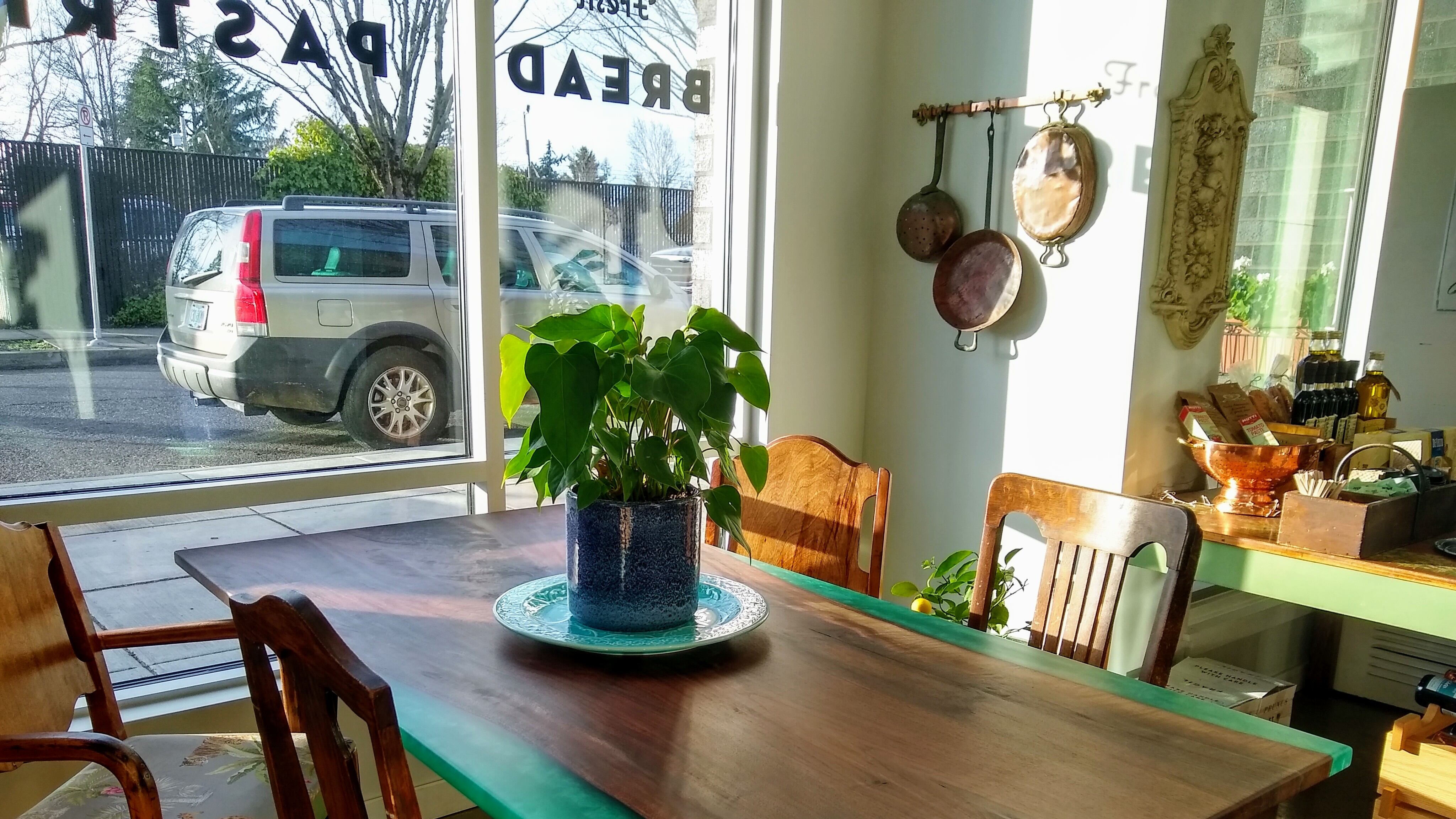Fourteen months ago, Michelle Vernier opened a bakery on the corner of Southeast Woodstock Boulevard and 92nd Avenue. Bella's Italian Bakery sells focaccia, almond cakes and cannoli in Lents, a once-gritty outer Southeast Portland neighborhood that's in the midst of a construction and retail boom.
On Jan. 21, Vernier's partner Nick Lee noticed something on the store's glass window. It was a sticker: The word "gentrification" was crossed out with a big red line. An identical sticker was plastered on the newly opened bar next door, Terminus Bottle & Tap.
"This seemed to be a pointed message," Vernier tells WW. "They're obviously angry about something."
For more than two decades, the residents of Lents have expressed frustration at the slow pace of development in this neighborhood. The city's economic development agency, Prosper Portland, has invested more than $75 million over the past five years to promote growth. And it's finally paying off: Apartment towers are replacing empty lots.
But the defacement of the two storefronts suggests Lents now must grapple with a new discontent: annoyance and fear from longtime residents that newcomers will price them out.
Kristi Shaffer co-owns Terminus Bottle & Tap, which got hit with the same stickers. She opened up shop last August, in the ground floor of a building that contains 126 government subsidized low-income apartments and 19 market-rate units. Shaffer has owned a home in Lents for 16 years.
Shaffer says she and Vernier are "absolutely not" contributing to gentrification, noting that both businesses keep their prices low and have mostly regular neighborhood customers. In addition to being a longtime Lents resident, Shaffer received a Prosper Portland grant to open her business, used women and minority-owned contractors in the construction and displays local art in her establishment.
"I don't think we're trying to raise the class level or change it at all," Shaffer said. "I think we're making it a better place to live."
The stickers prompted Vernier to create a post in a local neighborhood Facebook group asking the community for feedback on how to be as sensitive to this issue as possible.
"Gentrification is an important subject, and while it hurts to be accused of being part of the problem, I'm open to hearing from Lents residents about how we can do better," Vernier said in the Facebook post. "It's a privilege to have opened this bakery here, and we will always be looking for ways to improve and grow."
She said the response was supportive, with many community members offering ideas on how local businesses can do their research to be inclusive of all residents.
"What I've realized in listening to them is that it's not necessarily that gentrification itself is the problem, it's displacement," said Vernier, adding that while everyone wants to live in a safe, clean and bustling neighborhood, "it needs to be done in a thoughtful way where all income levels have a space and are able to live there."
Mo Wark, director of operations at nearby brewery Zoiglhaus, agreed that Lents faces the challenges of a neighborhood in transition. Zoiglhaus opened over three years ago.
"Gentrification is a really complicated issue and there's no easy answer," he said. "We try to listen to what the neighborhood wants. It's not always easy, though. There's not always one voice speaking for the neighborhood and that's true everywhere."
Since Shaffer has spent many years in Lents, she's seen the neighborhood change and welcomes the improvements.
"When I first moved there, it wasn't safe," Shaffer said. "I had a young daughter and we'd go to the grocery store and get harassed by people and followed around; it wasn't a place I could take my child to. Over the years, you see more and more people walking on the streets and going to businesses. It's great to have several different options you can go to in your neighborhood and bring your family."
For her part, Vernier said she's aiming to double the business' charitable contributions to the neighborhood this year and is committed to giving back to the community.
"All I can really do as one person is be a good neighbor, whether it's at home or as a business owner," she said. "I think the community here is awesome; the neighborhood is full of people that are really passionate about their community."

